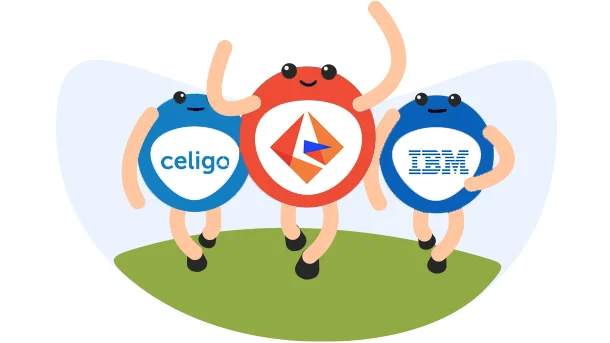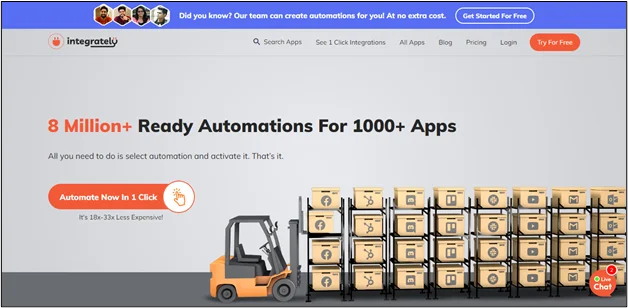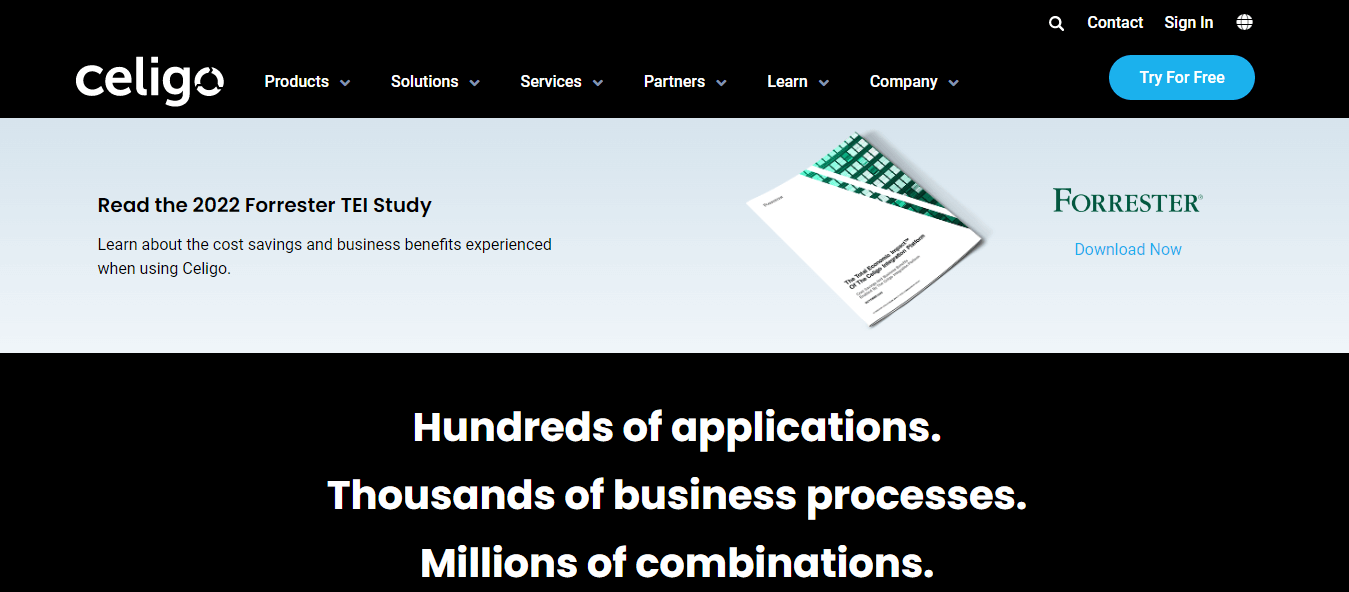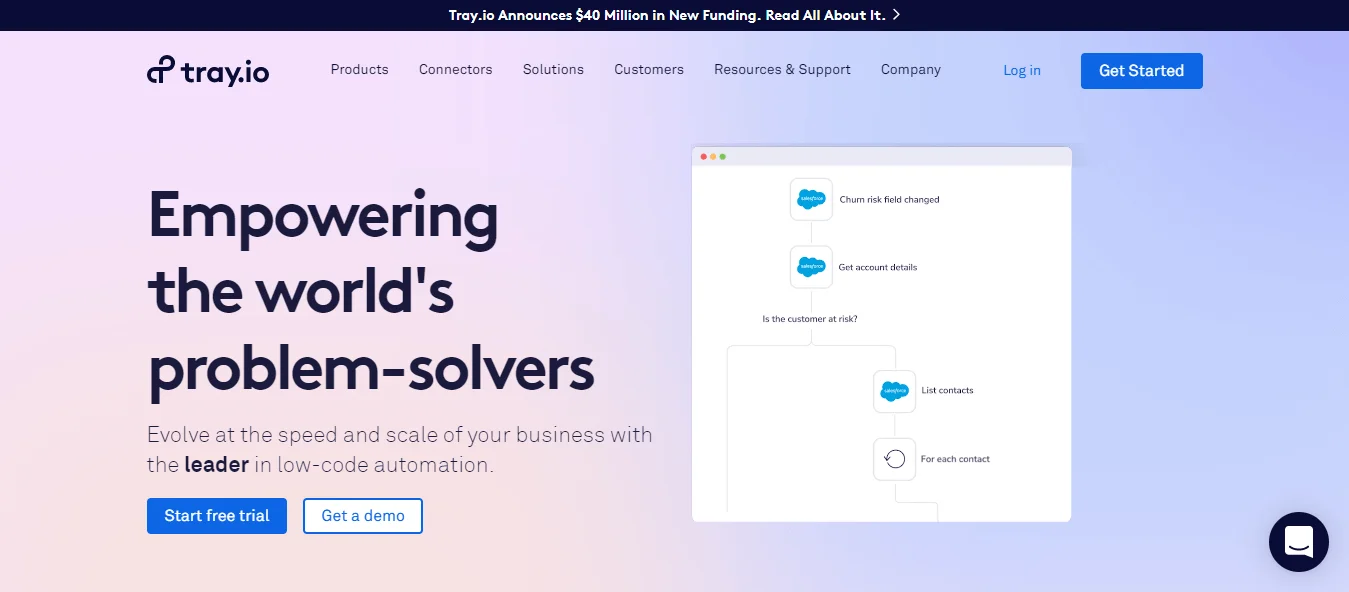
With Integration Platforms helping you bid farewell to manual headaches, choosing the best one can be overwhelming! Check out the top contenders that we have shortlisted to help you say goodbye to manual connections and hello to streamlined processes. No more scratching your head or pulling your hair out trying to figure out the best fit for your business.
An Integration Platform is a tool that helps connect your applications and services to communicate seamlessly. Imagine you have many apps on your phone, like messaging, social media, and online shopping. Sometimes you want to share information between these apps, like sending a picture from your camera app to your messaging app to send to a friend. An integration platform does exactly that!

Well, it’s like asking – Why use a blender to make a smoothie rather than mashing all the ingredients together with a fork?
I’m sure you imagined the entire mess and hard work that goes into it. The same goes for business; several apps are used every day! From the simple ones like Gmail to the more complex ones like accounting softwares, they are all being used at a large scale. So in such cases, having an Integration Platform helps businesses effortlessly manage data between different apps and automate processes or tasks. It helps you:
| Reduce 🡇 | Improve 🡅 |
|
|
An Integration platform connects one application to another to facilitate the following:
With many no-code and low-code Integration platforms rising on the horizon, using an Integration Platform has become easier. You don’t need to have any coding skills or be a technical expert to use them.
8 Million+ Ready Automations
For 750+ Apps
With answers to those What, Why, and How questions – Let’s now skip to the good part 😉
Although dozens of Integration Platforms exist, deciding which one to vouch for is not an easy task 🤯.
It requires careful consideration of your business needs and resources and a thorough evaluation of different platforms’ capabilities, limitations, and pricing.
No need to Worry; we have curated 5 of the Best Integration platforms for you to opt for in 2025.

In a short time, Integrately has become the go-to automation solution due to its ease-of-use and affordable pricing. With 1000+ apps integrated in just 2 years, it is giving a tough time to its competitors. Whether it be the millions of ready-to-use 1-click automations or a dedicated account manager, Integrately has many lucrative features that give its rivals a run for their money.
Pros
Cons
Best Suited For: Freelancers, Startups and Businesses
Integrately offers a freemium trial after which you need to choose from one of the 4 paid plans:
| Plan | Monthly pricing (when billed annually) | Tasks |
| Starter | $19.99 | 2,000 tasks |
| Professional | $39 | 10,000 tasks |
| Growth | $99 | 30,000 tasks |
| Business | $239 | 150,000 tasks |

`Hundreds of applications. Thousands of business processes.Millions of combinations.ONE iPaaS’ – says the tagline of Celigo. And why not? From offering app integrations to automating processes like payout to reconciliation, employee onboarding, and offboarding, it even offers a marketplace that can make you fall for it.
Pros
Cons
Celigo does not provide its pricing details on the website. Rather, you need to contact them for pricing details.
Best Suited For: IT professionals and Business users

Informatica is an Integration Platform tailored for cloud data warehouses like Amazon, Azure, Snowflake, etc. Backed by Artificial Intelligence, its simple, logical interfaces and connectors eliminate the need for complex coding and help easily set up intelligent hyper-automation. A helping hand to the DevOps and IT departments in building integrations quickly and enabling real-time updates, it is preferred by many enterprises.
Pros
Cons
It uses IPU as the unit for pricing. You need to buy the IPUs upfront and then subscribe to the service. From there, you can use as many or as few of the integration and quality services as you need and adjust your subscription level to fit your needs.
Best Suited For: Businesses of all sizes

One of the oldest players in the iPaas market, IBM has various products to manage your integration needs, including IBM App Connect, IBM Integration Bus (IIB), IBM API Connect, and IBM Integration Toolkit. They have recently come with IBM Cloud pak, a pre-integrated, containerized software used to build, run, integrate and manage applications in any cloud environment. Out of these, the most widely used Integration Platform is that os IBM App Connect.
IBM App Connect is a cloud-based integration platform that helps users connect and integrate various applications and data sources. It includes a visual editor, prebuilt connectors, and real-time monitoring and debugging capabilities. The features like scalability, conditional formatting, batch processing, and multi-cloud support make it a preferred choice among enterprise users.
Pros
Cons
You can get started with IBM App Connect on IBM Cloud for free, and when ready can upgrade to a choice of Pay As You Go (PAYG) plans or Custom Subscription options.
| Plan | Monthly pricing | Tasks |
| Lite | Free | 1000 flow runs per month1 GB data transfer per month |
| Pay as you go | Starting from USD 40 | 1,000 flow runs with an additional 1 GB of data per unit |
| Cloud | Starting from USD 400 | 50,000 flow runs with 50 GB of data per month |
| Hybrid | Starting from USD 1,600* per VPC per month | Custom |
| Enterprise | Custom | Unlimited flows and Data |
Best Suited For: Enterprises

Believing that every organization can and should automate, Tray.io helps citizen automators eliminate their daily menial tasks. Its intuitive visual builder, a wide range of connectors, and automation customizations using data mapping and transformation make it stand out. It provides 2 options:
Pros
Cons
| Pros | Cons |
| Intuitive Visual Builder that makes it easy to understand the workflowsWide range of prebuilt connectors for popular web applications and servicesUsers can write their custom codes to extend the functionality of their automationThe team collaboration feature makes it easy to share automations | Building complex automations requires a learning curve and some technical knowledge Debugging can get difficult at times |
It provides 3 pricing variants for the Tray.io Platform – Professional, Team, and Enterprise.
And for the Tray Embedded has 4 variants – Standard, Professional, Team, and Enterprise.
However, all these plans have a custom pricing structure available on request.
Webhooks also send data from one application to another but in real-time i.e whenever the data is available. They are often used to enable two applications to communicate with each other and exchange data in a seamless and efficient manner.
For example, a webhook might be used to send a notification to a chat app when a new order is placed on an e-commerce website, or to trigger an automated email campaign when a user signs up for a newsletter.